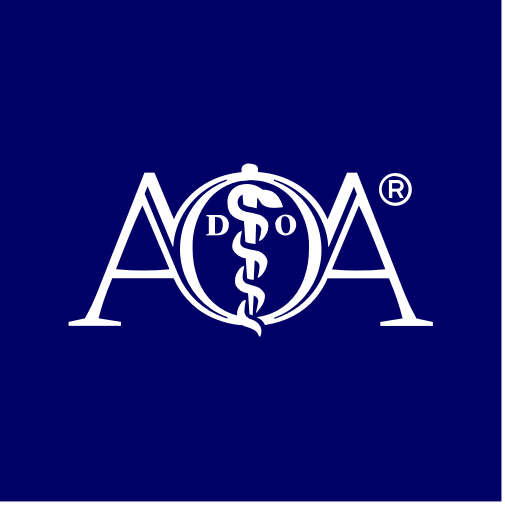
COURSE CREDITS & HOURS
16 AMA PRA Category 1 Credits™16 ACPE Credits
16.0 Contact Hours
ALSO AVAILABLE:
10 AMA PRA Category 1 Credits™
10 ACPE Credits
10 Contact Hours
COURSE FEES
| CREDITS/CONTACT HOURS | ATTENDEES | COURSE FEES |
|---|---|---|
| 10 AMA PRA Category 1 Credits™, 10 ACPE Credits, 10.0 Contact Hours | Physicians, Attorneys, Psychologists, Pharmacists, & Dentists | $695 |
| Physician Assistants | $595 | |
| Nurse Practitioners | $595 | |
| Nurses, Students & Others | $395 | |
| 16 AMA PRA Category 1 Credits™, 16 ACPE Credits, 16.0 Contact Hours | Physicians, Attorneys, Psychologists, Pharmacists, & Dentists | $995 |
| Physician Assistants | $750 | |
| Nurse Practitioners | $750 | |
| Nurses, Students & Others | $595 |
TARGET AUDIENCE
PROGRAM PURPOSE
Course Purpose: The purpose of this CME activity is to discuss common general medical conditions and to provide updated guidelines for their management and prevention.
Topics have been chosen to benefit the family physician, general internist and Advance Practice Professionals in an ambulatory care setting.
- Identifying and Managing Low Health Literacy
- Understand which patient groups are at greatest risk for low health literacy
- Appreciate the role that low health literacy plays on health outcomes
- Review a simple intervention to identify the low health literacy patient
- Preoperative Assessment of Cardiac Risk in Non-Cardiac Surgery
- To appreciate causes of perioperative cardiac events
- To understand which patients require preoperative assessment
- Hypertension in African Americans
- To understand the prevalence of hypertension in African Americans
- To review social determinants of health which impact on effective treatment in this population
â
- Rheumatoid Arthritis: A Primer for Primary Care Clinicians
- Review the role of the primary care clinician in the co-management of rheumatoid arthritis
- Describe the role of disease-modifying drugs (DMARDs) on the clinical course of rheumatoid arthritis
- Physician Wellness and Resilience: Old Problem; New Urgency
- To define physician wellness and the impact of physician stress on physicians and their patients
- To describe new interventions to help physicians cope with wellness issues.
- Heart Disease in Women
- Appreciate sex-related differences in symptoms of ischemia between men and women
- Review non-traditional risk factors for CAD impacting women that deserve special attention
- Discuss strategies to raise awareness and close the gaps to optimize treatment of heart disease in men and women
- Resistant Hypertension - Review of Case Studies to Enhance Understanding
- Through the use of case studies review the epidemiology the clinical presentation and evidence-based approaches resistant hypertension (HTN)
- Use current guidelines and algorithms to develop treatment plans for patients with HTN with an emphasis on resistant HTN
- Smoking Cessation
- Recognize the role of smoking in disease etiology and the Health Consequences as identified in recent Surgeon General and CDC Reports.
- Develop methods of how to recognize influence and build confidence in a patientsâ ability to quit smoking as per the AHCPR Guidelines.
- Utilize techniques and develop resources to enhance a patients' ability to stop smoking, such as the NCI and smokefree.gov.
- Recognize the various benefits or advantages, indications and contraindications for use of the various available drugs and devices to assisting your patient in smoking cessation
- Depression
- Explain the incidence and prevalence of depression.
- Evaluate patients with signs and symptoms of depression so as to make an accurate diagnosis as per the APA and DSM-5 Criteria.
- Prescribe appropriate medications and/or behavior modification to treat depression as well as bipolar disorder from initiation to continuation and maintenance, when needed
- Identify the suicidal patient and take appropriate actions for their safety as well as the public.
- Anemia
- Develop a diagnostic strategy to ascertain the etiology of the anemia.
- Utilize the guidelines for diagnosing anemia in children and adults in terms of available testing.
- Develop a clinical approach to treating various anemias to include Iron Deficiency and âAnemia of Chronic Diseaseâ due to infections, inflammatory diseases, CKD, Malignancies, Cytokines, Interferons, TNFâs, etc.
- Describe the role of consultants in the evaluation and management of anemia.
- Improving Compliance
- Use techniques that can better detect non-compliance in their patients.
- Apply techniques that can be used to increase compliance in their patients
- Headache
- Construct the approach for evaluating a patient with possible migraine headaches.
- Assess the advantages of supportive therapy and lifestyle changes in treating migraine headaches compared to pharmacologic therapy.
- Appraise the pharmacologic options for treating the acute pain of a migraine headache
- Recommend a prophylactic therapy regimen for patients with recurrent migraine headaches.
- Thyroid disease
- Formulate a plan for the evaluation of a patient with presumed thyroid disease.
- Interpret common lab and imaging tests in the evaluation of a patient with thyroid disease.
- Select appropriate treatment modalities, both medical and surgical, for patients with thyroid disease according to the American Thyroid Association
- Guidelines. Routine Adult Care
- Determine which screening tests are indicated for particular patients, according to USPSTF guidelines.
- Employ Guideline recommendations presented for common disorders such as HBP, Lipids, STDâs, Cancers-lung, Cx, Breast, etc; AAA, Hep B & C; T2DM, etc.
- Advise your patients regarding vitamins and supplements as per the USPSTF and Evidence.
- Order appropriate immunizations for adult patients as per the ACIP and CDC Schedules
- Obesity
- State the epidemiology of obesity in America and the health risks associated with obesity.
- Assess patients who are obese and determine that they are in need of treatment.
- Recommend and utilize the ACC/AHA/TOS Guidelines for the Management of Overweight and Obese Adults with options available, including diet, exercise, medications, and bariatric surgery.
- Employ the Endocrinology Society Guidelines on Pharmacological Management of Obesity


































